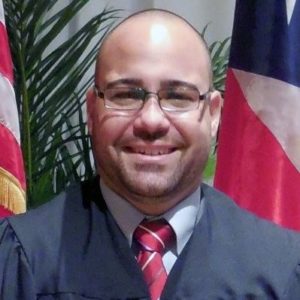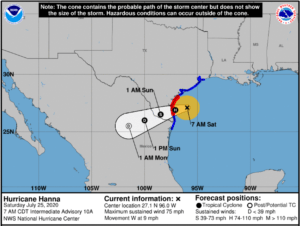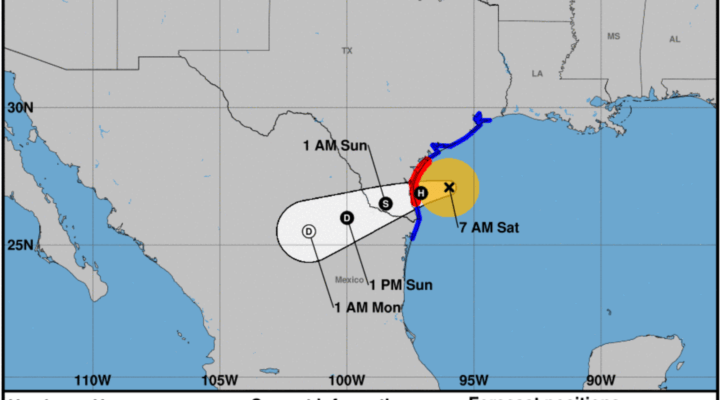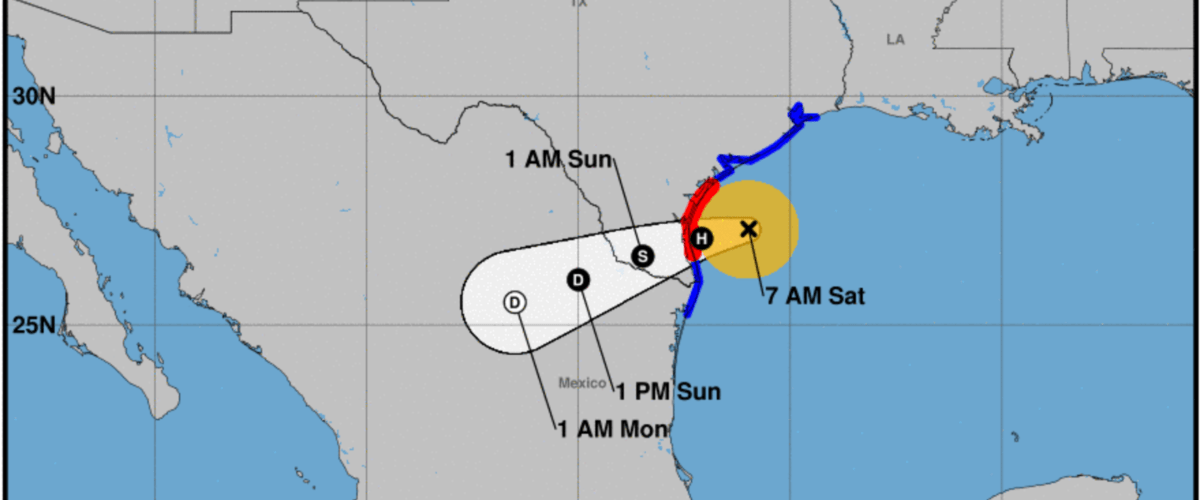If you think COVID-19 is nasty now, try riding out a natural disaster during the pandemic — or recovering from one.
Faith-based disaster response officials describe nightmarish challenges imposed by the coronavirus on communities that have endured hurricanes and tornadoes since the pandemic began.

Elket Rodríguez
Social distancing requirements have, by medical necessity, limited shelter availability and reduced volunteerism.
The result is more suffering.
“Recovery will be slower, much slower,” said Elket Rodríguez, immigrant and refugee advocacy and missions specialist for the Cooperative Baptist Fellowship and Fellowship Southwest.
“It will definitely change the way many organizations can go out and help those in need.”
Rodríguez is seeing that firsthand as he helps coordinate relief efforts to the victims of Hurricane Hanna, which made landfall July 25 at Padre Island, Texas. It later entered Northern Mexico near the border after cutting a swath through the Rio Grande Valley.
Recovery experts are now monitoring Hurricane Isaias, a system churning northward through the Caribbean with projected landfall in coronavirus-infected Florida or further up the East Coast.
Making adjustments
While first-responder organizations like the Salvation Army and Texas Baptist Men continue to deploy, groups that specialize in providing long-term response say their work is impeded by the pandemic.
“We have had no volunteers since March for our work in the (Florida) Panhandle,” Rick Burnette, domestic disaster response coordinator for CBF, said about rebuilding efforts from Hurricane Michael in 2018.

Rick Burnette (Photo/CBF)
The same holds true for work in the Bahamas and Puerto Rico.
There are some who want to go, but CBF doesn’t want to send them out into a pandemic, Burnette said. “We have not encouraged anyone to sign up or go.”
To compensate, the Fellowship provides funds to CBF state groups, partners and churches capable of responding to incidents in their areas. “We provide technical assistance and equipment, or we help them buy the materials they need,” he explained.
That approach is in effect at the U.S.-Mexico border, where financial assistance is being provided to CBF Texas and Fellowship Southwest to do Hanna recovery work.
This is why fundraising is the current focus of disaster response, Burnette said. “We pray that our friends are going to respond to all of these events to multiply these fishes and loaves we’ve got.”
There is a different set of adjustments being made by first-responder ministries.
At Texas Baptist Men, volunteers are wearing masks, operating in smaller teams to promote social distancing and having their temperatures checked daily, said John Hall, communications director.
Sleeping arrangements also have been adjusted during the pandemic. Instead of cramming into a gym as in pre-pandemic times, volunteers now spread throughout a church building to provide each person 110 square feet of personal space, Hall said, adding the practice is simple in churches not being used by their congregations during the pandemic.
The coronavirus has made some parts of the operation more challenging, he said. “But we learn new things as we go, and we make adjustments as we go.”
‘These pastors are heroes’
Thousands who lived through Hurricane Hanna are adjusting to the misery of homelessness and flooded homes.
And the pastors who serve those regions also are adjusting to the coronavirus-inflicted reality that fewer outside volunteers, if any, are coming, Rodríguez said. “Without those volunteers, it is going to take a toll on them because they usually are the middlemen between those providing the assistance and those who need it.”

Hurricane Hanna on July 25. (Image/National Hurricane Center)
Without the likelihood of volunteers, local ministers will shoulder most of the work of helping families rebuild their homes, he said. This is work they already have been doing for days.
“These guys are out there every day from early morning until 10 o’clock at night. I don’t know how long these pastors are going to be able to live at this rhythm.”
It is these ministers and their efforts that CBF Texas and Fellowship Southwest want to support.
One is a ministry to immigrants in Matamoros, Mexico, which is being provided funds to buy tents and equipment to sanitize the facility. Many of those it serves have fevers, he said.
They also are working with Hearts4Kids, a nonprofit led by Baptist Pastor Jorge Zapata that serves the poor who live along the border.
“These pastors are heroes,” Rodríguez said. “They are out there trying to be the presence of God to all the people who live around their churches.”


